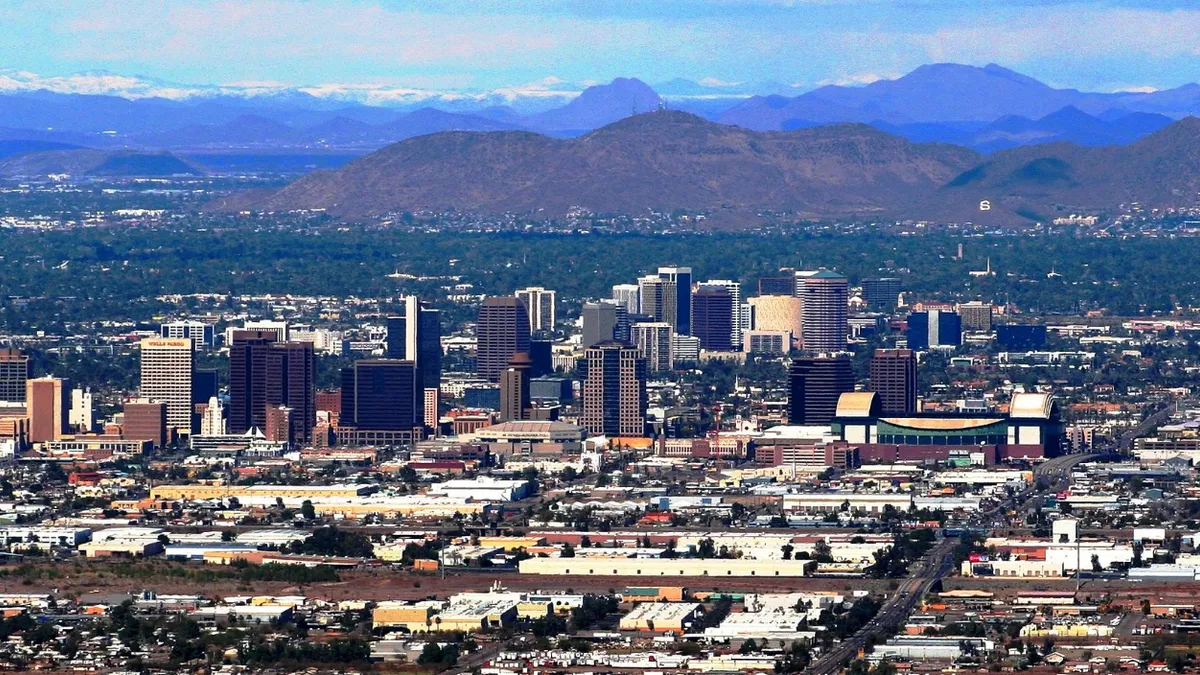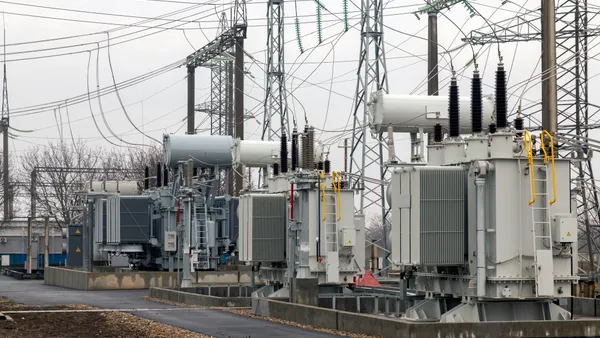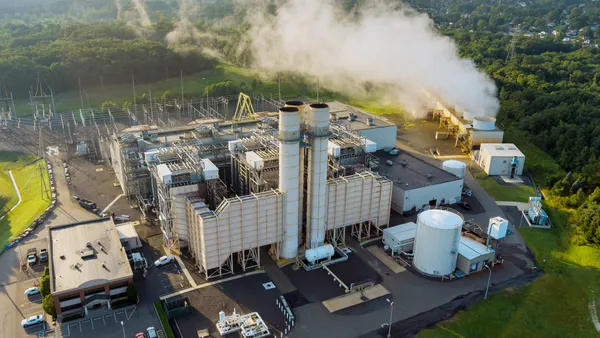Dive Brief:
- State regulators yesterday voted 4-1 to increase rates for Arizona Public Service and approve a settlement with solar advocates that establishes a new compensation scheme and allows customers to lock in their rate for years.
- The Arizona Corporation Commission's decision means a typical residential customer will see bills rise 4.5%, or about $6/month.
- As part of the decision, APS will invest $10 million to $15 million per year in an AZ Sun II rooftop solar program and will refund $15 million in surplus energy efficiency program funds to customers.
Dive Insight:
The regulators' decision to approve the solar settlement could induce a trust between two warring sectors for a time.
Along with solar investments and efficiency refunds, APS agreed to grandfather existing rooftop solar customers for 20 years. New rooftop solar customers will be paid $0.129/kWh for excess energy, and the export rate will decline 10% annually for new systems. However, customers lock in their rates for 10 years when they sign up.
APS Chairman, President and CEO Don Brandt said energy consumers "are the clear winners here." The revenue increase is the company’s first base rate increase in five years, allowing for an overall 3.3% boost.
"This agreement enables investment in a smarter, cleaner energy infrastructure, gives customers more choice and control through new rate options, and continues Arizona’s solar leadership," Brandt said in a statement. “It is a needed step in creating a long-term, sustainable energy policy for our customers and the state.”
The decision will allow the utility to make three years of investments in its grid, and spend money modernizing its generation. APS said it will reduce emissions and meet other goals through a $500 million investment to modernize the Ocotillo Power Plant and a $400 million investment at the Four Corners Power Plant. The utility will also fund the continued development of battery storage, microgrids and advanced solar research.
APS has committed to not file another request for a comprehensive review of its rates before June 1, 2019 —meaning three years between rate reviews. Brandt said the most recent review was "open, collaborative and inclusive of a broad range of customer classes and stakeholders."
It took more than a year fom filing the initial proposal, but Brandt said "we have a resolution that benefits our customers and positions Arizona as a leader in smart energy policy.”
The decision was not unanimous, however. ACC Commissioner Robert Burns voted against the rate increase, according to The Arizona Republic, saying he was not convinced the additional revenues are necessary.














